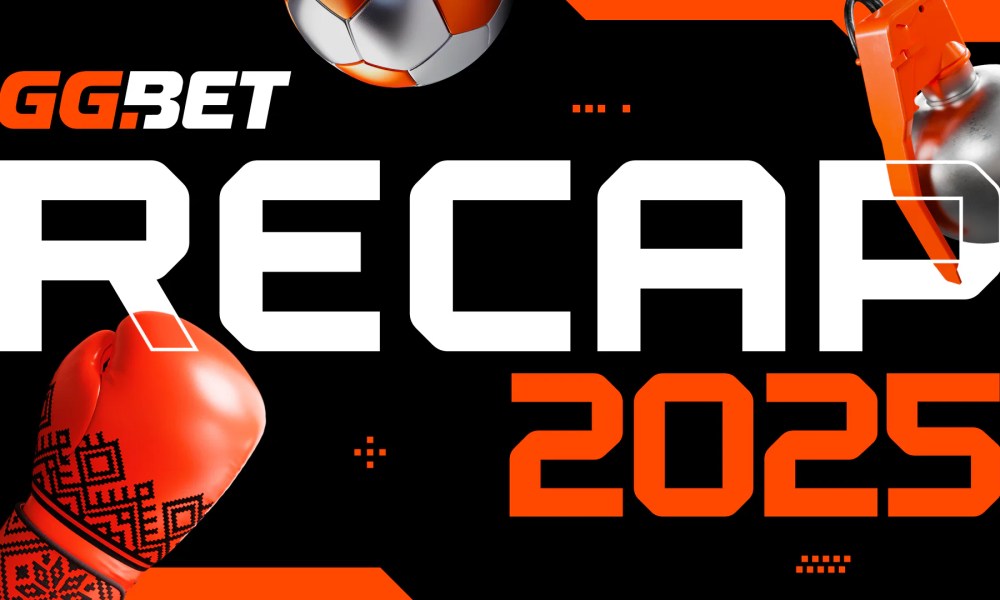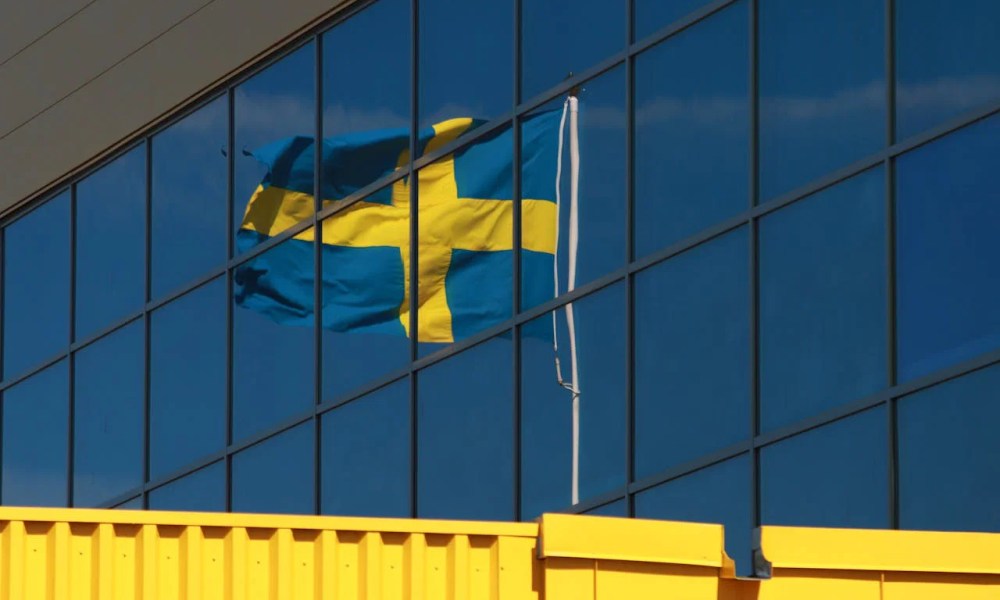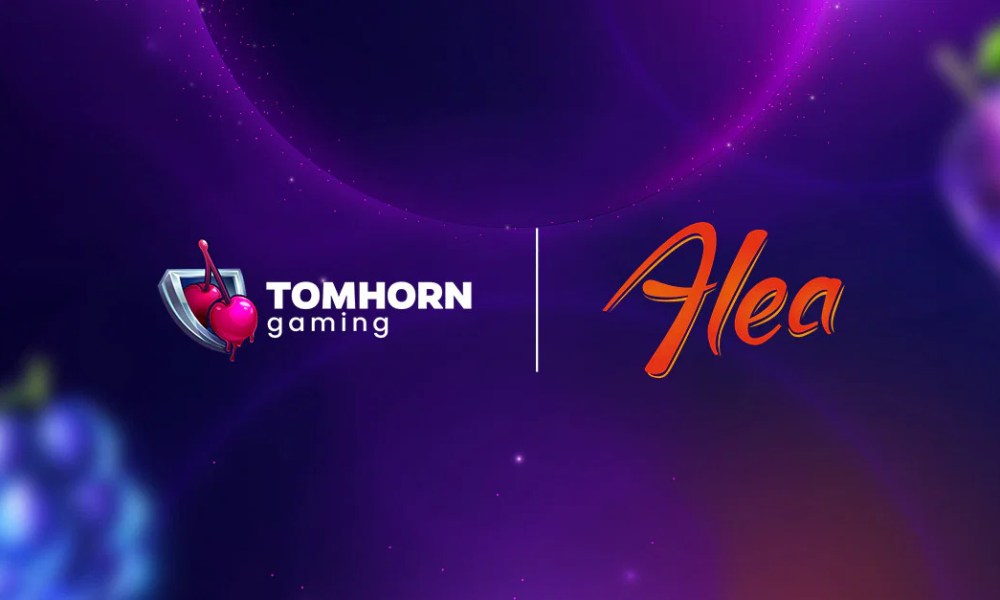Latest News
BOS rejects the government’s proposal to raise the gambling tax
The Swedish Trade Association for Online Gambling (BOS) today submits its advisory statement to the Ministry of Finance on the memorandum “Increased gambling tax”.
The memorandum proposes an increase in gambling tax from 18% to 22%, to apply from 1 July 2024. BOS rejects the proposal.
– The government can hardly time its proposal to raise the gambling tax to a worse time. We are in a situation where fewer and fewer players choose to play on the safe licensed market, and more and more on the unregulated, unlicensed gambling market. That the government proposes to raise the tax for licensed gambling is the best Christmas present you can think of – to the unregulated and unlicensed gambling market, says Gustaf Hoffstedt.
The memorandum in English can be found below:
Referral statement Fi2023/02665, Increased gambling tax
About BOS
The Swedish Trade Association for Online Gambling (BOS) is here issuing its opinion on
the memorandum “Increased gambling tax”, in which it is proposed that the excise tax
on gambling be increased from 18 to 22 percent as of July 1, 2024.
BOS represents twenty gambling companies that operate on the Swedish gambling
market.1 This makes us the largest trade association in Sweden within our industry. All
members have a license/permit issued by Spelinspektionen.
BOS recommendation
BOS rejects the proposal to raise the gambling tax.
Our motives for the rejection
The goal of the gambling market, as described by the government, “is a healthy and
safe gambling market under public control”. In addition, according to the government,
revenues for the common good must be protected, the negative consequences of
gambling must be reduced, gambling for money must be covered by strong consumer
protection and cannot be misused for criminal activities.
BOS believes that the proposal for a tax increase is in conflict with all of the government’s stated goals for the gambling market. It is connected with the fact that the implementation of a tax increase on gambling will lead to a reduced channelization to the
Swedish regulated gambling market, something that is also expressed by several other
reference bodies, including the Swedish Gambling Authority.
In contrast, the un-licensed and not infrequently illegal gambling market in Sweden will gain market share
if the proposal to raise the gambling tax is implemented.
It is connected with the fact that a tax increase on licensed gambling further
strengthens the competitiveness of unlicensed gambling in Sweden, which
correspondingly increases in attractiveness when Swedish gambling consumers have
to make decisions about where their gambling will take place. A product subject to
high tax is less attractive than a comparable product subject to low or no tax.
Channelization
The concept of channelization refers to what proportion of Swedes’ gambling takes
place on the licensed market designated by the state, and what proportion takes place
on the unlicensed market in Sweden. Ideally, all gambling should take place on the
licensed market, but in practice this is impossible to achieve, especially when it comes
to online gambling, which by its very nature is cross-border. Sweden’s unofficial
channelization target has therefore been set at 90 percent. In other words, it is
acceptable (but not desirable) with a leakage to the unlicensed gambling market of no
more than 10 percent. If the leakage becomes greater than that, the goals of the
gambling policy are considered to be unachievable.
Unfortunately, Sweden’s channelization target must now be described as “unofficial”,
with reference to the fact that the government seems to have distanced itself from the
target in recent years. What was initially a clearly defined goal from both the government and the Riksdag, at least in the political debate, has in recent years rather been referred to as an expectation, assessment or forecast.
To the extent that a government and Riksdag decision is needed to establish Sweden’s
90 percent target, we strongly recommend that the government take this initiative,
and thus not distance itself from this gambling policy goal by calling it something other
than a goal or objective (for example assessment). It is in the government’s own
interest that there is a channelization goal and any way to distance oneself from this
harms the government and the legitimacy of the licensing system, and what is worse
harms Sweden’s gambling consumers.
The reason why the government should under no circumstances undermine the goal of
at least 90 percent channelization is that a high ditto is a basic prerequisite for all other
goals of gambling policy. A high channelization goal is a goal to reach all other goals.
These other goals can be summarized as:
– That consumer protection is strong
– That unhealthy gambling is kept to the lowest possible level
– That crime is pushed back
– That the state receives good tax revenue from gambling
– That the licensed gambling companies have good profitability and good conditions
– That the licensing system has high legitimacy
The government states as a motive for raising the tax that “[t]he current tax rate of 18
percent has applied since the Swedish gambling market was reregulated in 2019. The
gambling market has since stabilized, and channelization has increased significantly.”
It is a claim and a description of reality that we dare to say that the government is
quite alone. In the memorandum, the government presents no more recent figures
than those presented by the Swedish Agency for Public Management (Swe: Statskontoret), which originate from 2021, in a report on the gambling market.
It is unfortunate that the state has not produced more recent data than this, and it is
unfortunate that the government has not taken on board new data presented by
actors other than the state. BOS was able to show half a year ago that the
channelization in March 2023 was 77 percent for all competitive gambling (that is, all
gambling not protected by monopoly).
It is a channelization that testifies that the Swedish licensing market is in a very serious situation.
The BOS report also broke down the competitive gambling market into its various
components, such as sports betting and online casino. The gambling vertical online
casino, along with online poker, showed the very weakest channelization at 72 percent. That in such a situation there is no room for measures that further damage
channelization – which a tax increase on gambling does – should be obvious.
In addition to BOS’s channelization report, which was carried out by opinion institute
SKOP, the gambling company ATG has had the channelization measured using a
different methodology and presented it in a report. ATG’s measurement mirrors the
BOS report in terms of channelization in general in the gambling market (only 1
percentage point separates the two measurements). On the other hand, the ATG measurement shows an even worse position for the gambling vertical online casino.
Considering ATG’s channelization report, where channelization has fallen dramatically
since the Swedish re-regulation in 2019, it is difficult to even know how to relate to the
government’s claim that “[the] gambling market has since stabilized, and
channelization has increased significantly.” In a later report from ATG, which extends
to Q3 2023, channelization has further fallen to 70 percent channelization for the overall license market and 59 percent channelization for online casino.7
In addition to the above quote from the government testifying that the government
simply lacks a basis for its claim, it demonstrates another, general, shortcoming in the
government’s memorandum: the lack of data, basis, preparation, and analysis.
Examples of the absence of analysis concern the proposal’s impact on the media and
the sports movement. Both of these social actors are major recipients of money from
the gambling industry. A cost increase for the licensed gambling industry of SEK 0.5
billion annually (the increased tax revenue estimated by the government) has to come
from somewhere, and this will by all accounts happen at least in part through reduced
advertising in traditional media and reduced sports sponsorship. The government has
nothing to say about how the media and the sports movement are affected by the government’s proposal. There are no impact analyzes in the government’s memorandum on this.
Through advertisements in, for example, the daily press and sponsorship of sports
teams, awareness of the brands of the licensed betting companies is increased. Such
marketing and sponsorship thus promote the Swedish gambling market, in that
licensed gambling companies are top of mind when the gambling consumer chooses
an operator for its gambling. In addition, of course, the money from the gambling
industry is of great use in the daily recruitment of both sports associations and newsrooms, for their respective important tasks in our democratic society.
The government’s memorandum is not only incomplete in that it does not highlight
and analyze the consequences for important social actors. In addition, the small
approach to analysis that is actually presented in the memorandum seems to be
poorly executed. The government calculates the expected increased tax revenue at
SEK 539 million. There is no calculation for increased costs for the expected increased
gambling addiction, as a consequence of players migrating to unlicensed gambling, in
the analysis. In addition, there is a complete lack of calculations on the extent of lost
tax revenue due to the fact that the tax increase results in reduced channelization, as
well as in general reduced gambling on the license market because the price of
gambling products is raised.
With regard to price sensitivity (price elasticity), the figure -0.5 is used in the memo –
that is, not price sensitive – which is information taken from the inquiry “A reregulated
gambling market”. The information in the inquiry in turn refers to an external report
from 2014 from Great Britain.8 However, the UK document indicates a higher price
elasticity for certain gambling products, including online casino with a figure of -1.5
(high price sensitivity), but this fact – that gambling decreases when the price of
certain gambling products is increased – is completely omitted from the government’s
memorandum. The government’s estimated increase in tax revenues of just over SEK
0.5 billion annually therefore appears to be pure wishful thinking based on incorrect
assumptions.
Optimal tax rate
On behalf of BOS, in 2016 the consulting firm Copenhagen Economics had an optimal
tax level calculated for Swedish conditions, ahead of the Swedish re-regulation in
2019.9 As far as we know, it is the most detailed investigation that has been done based on Swedish conditions, and the report had a noticeable impact on the government’s and the Riksdag’s decision to set the gambling tax at 18 percent gross gaming
revenue.
Copenhagen’s Economics report presents an optimal range for the state to stay within,
15-20 percent. A tax rate above 20 percent means lost channelization, but also in the
long term reduced tax revenue, in accordance with a classic Laffer curve. There is no
reason to believe that the state can now, compared to the years before the Swedish
reregulation of the gambling market, be able to deviate from the presented tax range
without damaging the license market. On the contrary, today’s critically low
channelization bears witness that the tax in this sensitive situation should under no
circumstances be increased. Instead, the government and the Riksdag should urgently
devote themselves to reforms that strengthen channelization.
Reforms that strengthen channelization
In this context, BOS would like to conclude by raising a finger of warning for the superstition we see when governments – the current one as well as the previous one – propose new repressive measures on the gambling market. Repressive measures aim to
make it difficult for and exclude unlicensed gambling companies from the Swedish
gambling market. Examples of such measures are so-called B2B permits, payment
blocks and bans on promoting unlicensed operators.
We are generally positive about such measures, and we see their complementary task
as absolutely crucial to succeed in maintaining a high channelization. Complementary
in the sense of reinforcing a gambling license market that is fundamentally perceived
as attractive by the player collective. We object, however, to the fact that governments seem to live in the delusion that the attractiveness of the gambling license
market can be worsened (for example, by raising the gambling tax) without this
worsening the channelization, as long as the deterioration is met with repressive
measures to shut out unlicensed gambling. All experience, from Sweden and a number
of jurisdictions where our members operate, shows that this is an incorrect
assumption. In addition, governments tend to mortgage strengthened channelization
through intensified repression already in advance, not infrequently before the
repressive measures have even been put into effect.
Repressive measures strengthen and promote the licensed gambling market when this
is fundamentally perceived as attractive by the player collective. It is the customers
who decide whether the gambling should take place on the licensed market or not. No
countermeasures in the world, at least in the democracies of the Western world, can
stop the outflow of gambling consumers if the consumers do not consider that the
gambling offer they are given on the license market is sufficiently attractive.

Latest News
LinkDataMedia Drops ‘Startup’ Look with Major 5th Anniversary Rebrand
Editor’s Take
Why this matters: In the iGaming affiliate space, the five-year mark is a critical survival threshold. Many media startups fade away before reaching it. LinkDataMedia’s decision to rebrand now is a classic “graduation” signal. By shedding their startup skin for a more corporate, “blue-chip” aesthetic (the stability-focused blue triangle), they are telling operators and partners that they are no longer just an affiliate project, but a stable infrastructure partner ready for larger commercial deals.
The Full Story
LinkDataMedia, the parent company behind the popular affiliate portal Gamblers Connect, has announced a comprehensive corporate rebrand to coincide with its fifth anniversary.
The overhaul includes a completely refreshed brand identity, a redesigned logo, and a fully revamped website, all of which are now live. The move is described by the company not as a mere cosmetic update, but as a strategic pivot designed to distance the business from its “startup roots” and reflect its current status as an established player in the competitive iGaming media landscape.
Visualizing Maturity The new visual language features a modernized blue triangular logo, a shape chosen to represent “stability and forward momentum.” The digital user experience has also been streamlined, offering partners a cleaner interface that aligns better with the company’s matured operational capabilities.
Management Commentary Gjorgje Ristikj, Founder and CEO of LinkDataMedia, commented on the significance of hitting the half-decade milestone in such a volatile industry:
“Surviving the first five years in business takes more than luck. It takes belief, resilience, and the right people around you. This milestone, and the rebrand, reflect exactly that.”
Implementation The new branding has already been deployed across the main corporate website and is currently being rolled out across LinkDataMedia’s social media channels and internal communication platforms. As the company enters its sixth year, the refreshed identity aims to set the stage for a new phase of expansion and innovation.
The post LinkDataMedia Drops ‘Startup’ Look with Major 5th Anniversary Rebrand appeared first on Gaming and Gambling Industry Newsroom.
Latest News
Win Systems to Debut New ‘Gold Club Colors’ and WIGOS Upgrades at ICE Barcelona
Editor’s Take
Why this matters: As ICE makes its historic move to Barcelona, established tech providers like Win Systems are under pressure to bring their “A-game” to the larger venue. The focus here isn’t just on cabinets; it’s the ecosystem. By highlighting WIGOS (their CMS) alongside WIN PAY, Win Systems is positioning itself as an infrastructure partner, not just a hardware supplier. The debut of the Gold Club Colors roulette specifically targets the growing demand for visually customizable electronic table games (ETGs).
The Full Story
Win Systems, the global provider of technology for the gaming and entertainment industry, has confirmed its product roadmap for ICE Barcelona 2026, the sector’s most significant international event taking place from January 19 to 21.
Exhibiting at Stand 3M30 at the Fira Barcelona Gran Via, the company will leverage the new venue to showcase a broad portfolio designed to cover the entire casino floor—from management systems to the gaming floor itself.
Systems and Fintech At the core of the showcase is WIGOS, the company’s flagship Casino Management System (CMS). WIGOS is widely recognized for connecting thousands of machines across multiple countries, and the Barcelona display will focus on advanced tools that streamline daily operations and optimize player retention.
Complementing the CMS, Win Systems will present WIN PAY, its secure transaction platform. As cashless and seamless payment solutions become standard requirements for operators, WIN PAY offers the necessary efficiency and security controls for modern gaming environments.
Hardware: Roulette and Slots On the hardware side, Win Systems is refreshing its electronic table game offering with the new Gold Club Colors electronic roulette. The Gold Club line has long been a staple in the company’s portfolio, known for its compact footprint and reliability; the “Colors” iteration promises to maximize visual impact on the floor.
Alongside the roulette, the company will display its latest slot hardware, including the Sublime and Rhapsody cabinets. These units are designed to house the company’s extensive game library, which has been adapted to suit diverse market profiles from Europe to Latin America.
Strategic Goals Win Systems aims to use the three-day event to reinforce its 30-year legacy in the industry. The company described its participation as a commitment to “continuous innovation,” inviting operators and regulators to explore how their integrated solutions can improve in-room performance.
The post Win Systems to Debut New ‘Gold Club Colors’ and WIGOS Upgrades at ICE Barcelona appeared first on Gaming and Gambling Industry Newsroom.
Latest News
bet365 Brings Popular ‘Over/Under’ F2P Game to UK Market with LOW6
Editor’s Take
Why this matters: The UK betting market is mature, but the appetite for US sports (NFL in particular) is growing rapidly. By porting this specific “Over/Under” prop format—which has already succeeded in North America—bet365 is engaging a specific sub-segment of UK bettors who prefer the player-prop style of betting common in the US, rather than the traditional match-winner markets. It’s a smart retention play that uses “free-to-play” fun to educate users on complex prop markets.
The Full Story
bet365, the world’s leading online betting brand, has announced the UK launch of its popular Over/Under free-to-play (F2P) game, developed in partnership with gamification specialist LOW6.
This rollout follows successful deployments of the title in Canada, Mexico, Brazil, and multiple U.S. states, where it has already generated millions of prop picks. The move signals bet365’s intent to deepen engagement with UK-based fans of major American sports leagues.
How the Game Works Designed specifically for followers of the NFL, NBA, MLB, and NHL, the Over/Under game offers a fast-paced, prop-based format.
-
The Mechanic: Users select “Over” or “Under” on specific player performance stats (e.g., passing yards, points scored).
-
The Strategy: Players can choose between 3 to 10 markets per entry. The more selections they combine, the higher the potential prize.
-
The Bridge to Betting: Once an entry is confirmed, the game features a one-click integration that allows players to instantly port their F2P selections into a real-money bet slip on the bet365 platform.
Management Commentary Jon Riley, PR Operations Lead at bet365, highlighted the rising popularity of US sports across the Atlantic:
“The growth of sports betting in the US has been remarkable – fans are engaging with their favourite leagues, teams and events like never before… That passion for the NFL, NBA, MLB, and NHL has grown globally, and at bet365 we’re delighted to launch such an exciting and entertaining free-to-play game this side of the Atlantic.”
Jamie Mitchell, CEO of LOW6, emphasized the data-backed success of the format:
“The feedback from users, as well as the player numbers and underlying player engagement data shows this game has been a perfect fit. To see bet365 now making it available in the UK is testament to the success of the partnership.”
Josh Turk, Chief Strategy Officer at LOW6, added that the “slick” user journey from free-to-play to real-money wagering is a key feature driving the product’s retention value.
This launch further solidifies the relationship between bet365 and LOW6, leveraging F2P mechanics not just for acquisition, but to increase “player lifetime value” (LTV) by educating casual fans on prop betting markets.
The post bet365 Brings Popular ‘Over/Under’ F2P Game to UK Market with LOW6 appeared first on Gaming and Gambling Industry Newsroom.
-

 Latest News2 weeks ago
Latest News2 weeks agoSCCG Announces Strategic Partnership with Yellow Elephant Studios to Expand Multi-Channel Gaming Content Worldwide
-
Latest News3 months ago
Announcement: 25th September 2025
-
Latest News1 month ago
JioBLAST Launches All Stars vs India powered by Campa Energy: A New Era of Creator-Driven Esports Entertainment
-
Latest News3 months ago
The Countdown is On: Less Than 3 Months to Go Until The Games of The Future 2025 Kicks Off in Abu Dhabi
-
eSports1 month ago
CS:GO Betting Gains Momentum in the iGaming Sector
-
Latest News3 months ago
Evolution launches Sneaky Slots — a Bold New Slot Studio
-
Latest News2 weeks ago
THE 2025 PUBG MOBILE GLOBAL CHAMPIONSHIP GROUP STAGE WRAPS UP WITH LAST CHANCE IN SIGHT
-
Latest News3 months ago
Leading The Charge! Euronics Group Joins LEC As Official Electronics Retail Partner












You must be logged in to post a comment Login